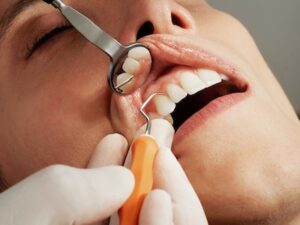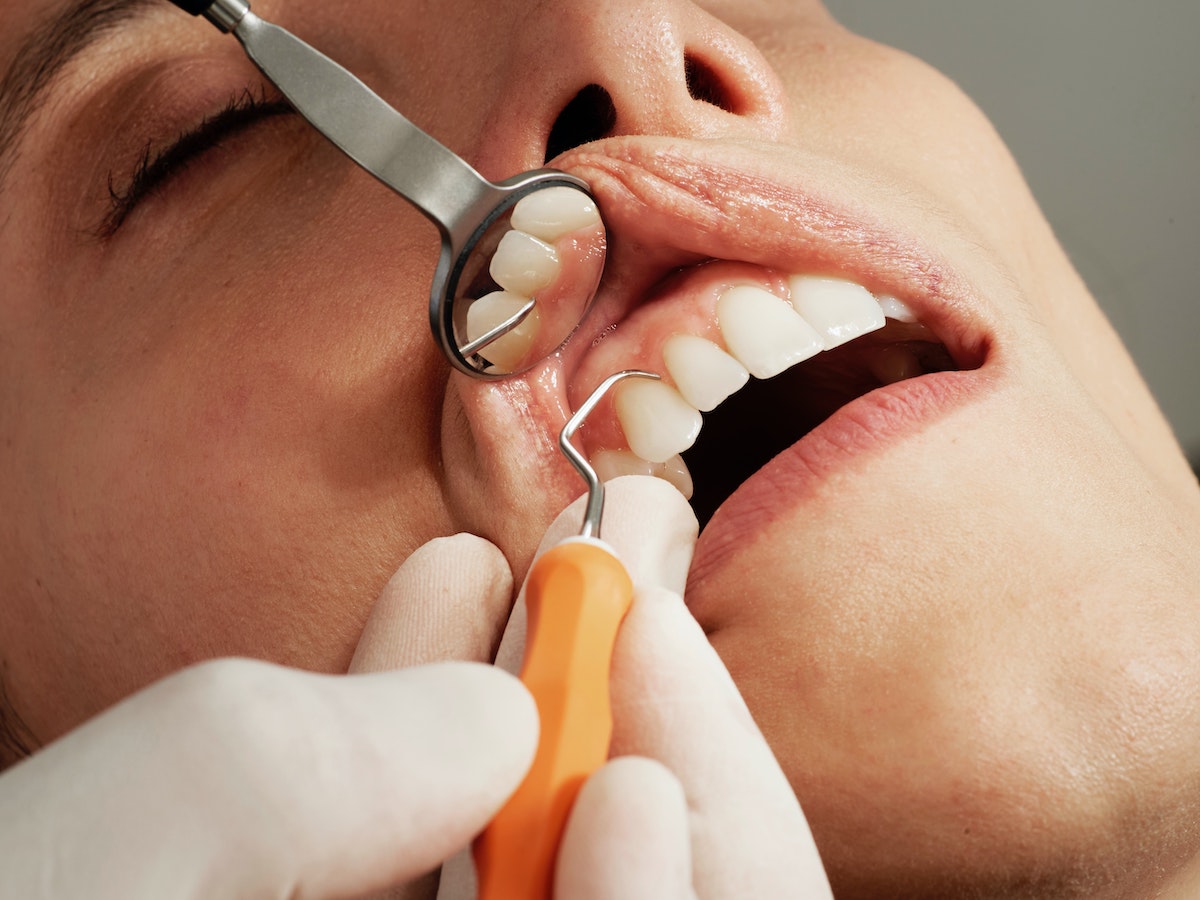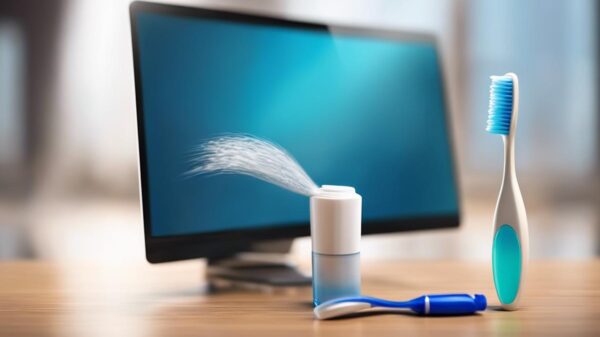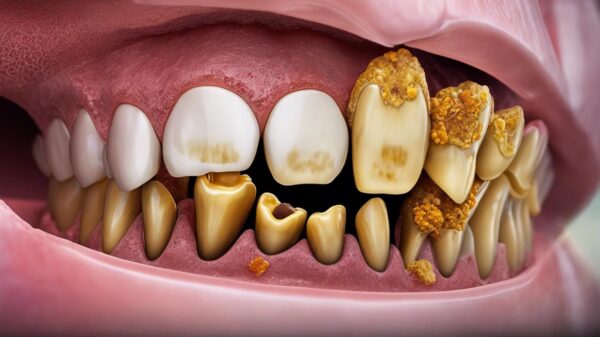Are Deep Cleanings Painful At the Dentist?
If you’re like most people, you probably dread going to the dentist. And if you’ve never had a deep cleaning done before, you may be wondering if it’s painful.
So, is it painful to get a deep cleaning at the dentist? Here’s the good news: deep cleanings are usually not painful, however, they can be a bit uncomfortable. With the information below though, you will learn that deep cleanings are nothing to fear and do not typically result in any lasting pain.
Keep reading to learn more about deep cleanings and why they are not so bad!
How Painful Can a Deep Cleaning Be?
Although some might report some pain after a deep cleaning, the simple answer is no, it is not painful to get a deep cleaning at the dentist. Most people report feeling no pain at all during the procedure.
Any pain that might be experienced during a deep cleaning is usually described as a sharp, shooting sensation that lasts only for a few seconds, something that seems pretty manageable!
However, some people may experience some discomfort or sensitivity afterward. This is usually temporary and can be alleviated with over-the-counter pain medication. Deep cleanings are an important part of oral care, so don’t let the fear of pain stop you from getting one!
What Happens During a Deep Cleaning?
 Many might feel uncomfortable about getting a deep cleaning because they are not sure about what they are or what happens during the procedure.
Many might feel uncomfortable about getting a deep cleaning because they are not sure about what they are or what happens during the procedure.
To start, deep cleaning at the dentist is also called scaling and root planing.
During this procedure, the dentist or hygienist will use special instruments to remove tartar (hardened plaque) from above and below the gumline.
They will also smooth out any rough spots on the teeth roots to help prevent tartar from building up again in the future. This improves the health of your teeth and mouth by offering thorough teeth cleaning.
During a deep cleaning, your dentist will remove plaque and tartar from your teeth and gums. This process is called scaling. Scaling can sometimes cause your gums to bleed or feel sore afterward.
Additionally, your dentist may use a tool called an ultrasonic scaler during your deep cleaning. This tool emits sound waves that help break up plaque and tartar. Some people find the sensation of the ultrasonic scaler to be unpleasant.
Overall though, deep cleanings are not typically painful and they are an important part of maintaining good oral health. So if your dentist recommends a deep cleaning, don’t be afraid to schedule it. Your teeth will thank you!
How Long Does a Deep Cleaning Take?
Deep cleanings are usually done in two visits, although sometimes they can be completed in just one. The first part of the procedure involves numbing your mouth with local anesthesia to help ensure that you won’t feel any significant pain during your procedure.
Then, the dentist or hygienist will use a scaler to remove tartar from your teeth above and below the gumline. Next, they will use a hand-held instrument called a curette to clean out any tartar or debris that’s trapped in the pockets around your teeth.
Finally, they will smooth out any rough spots on your tooth roots. The second visit is typically shorter and involves numbing your mouth again and repeating the scaler and curette steps. Overall, the procedure is fairly straightforward while still ensuring effective cleaning.
Will I Need to Have Check-Ups With My Dentist Afterwards?
After completing your deep cleaning procedure, your dentist may recommend a follow-up visit to check on your progress and see if you need any additional treatment. They may also give you some tips for taking care of your teeth at home, such as using a special toothbrush or mouthwash.
These checkups can be very beneficial and help make sure that your oral hygiene is maintained after your deep cleaning procedure.
What Are the Benefits of a Deep Cleaning?
 Getting a deep cleaning done is beneficial to your oral health for many reasons.
Getting a deep cleaning done is beneficial to your oral health for many reasons.
A deep cleaning at the dentist can help to remove tartar, plaque, and bacteria from your teeth and gums. This can help to prevent cavities, gum disease, and bad breath.
Deep cleanings can also help to reduce the risk of developing other serious health problems, such as heart disease and stroke.
With such great benefits, the procedure is often a great choice for people to make with their dentists.
What Are the Potential Risks of a Deep Cleaning?
Deep cleanings are generally safe procedures with few risks. However, as with any medical procedure, there are some potential risks and side effects associated with deep cleanings. These include:
Bleeding Gums
During a deep cleaning, your gums may bleed more than usual. This is normal and should stop within a day or two.
Soreness and Tenderness
You may experience some soreness and tenderness in your gums and teeth after the procedure. This is also normal and should go away within a few days.
Damage to Teeth
In rare cases, the instruments used during a deep cleaning can damage your teeth. This can cause chips, cracks, or other problems that can potentially cause pain as well.
Allergic Reactions
Some people may be allergic to the local anesthesia used during a deep cleaning. If you experience symptoms such as hives, difficulty breathing, or swelling, call 911 or go to the nearest emergency room immediately.
If You Are Still Feeling Anxious
 As you might have concluded by now, deep cleanings may cause some discomfort, but no real pain.
As you might have concluded by now, deep cleanings may cause some discomfort, but no real pain.
This might still pose some worries though, especially for those who often avoid going to the dentist in the first place.
It is important to remember however that this procedure is for your benefit, and your dentist and dental hygienists are there to make it go as smoothly as possible.
If you are concerned about pain during a deep cleaning at the dentist, talk to your dentist beforehand.
They can provide you with numbing gel or spray so that you do not feel any discomfort. They can also give you a sedative to help you relax during the procedure. Deep cleanings at the dentist are important for keeping your teeth and gums healthy, so do not let fear of pain keep you from getting one
Things to Remember Before Your Deep Cleaning
Despite all of the information above, a deep cleaning can still feel a bit daunting, but remember, it most likely is not going to be as bad as you think it is! Most people report no pain during their deep cleaning, only some discomfort.
It is common for patients to experience some level of discomfort when getting a deep cleaning at the dentist. This is because the procedure involves scraping away tartar and plaque from the teeth and gums. However, most patients report that the discomfort is manageable and does not last long.
Some patients may also experience sensitivity in their teeth and gums after the procedure. This is typically temporary and will go away within a few days. Overall, deep cleanings are not considered to be painful procedures.
However, if you are concerned about the level of discomfort you may experience, speak to your dentist beforehand so they can help you manage your pain during the procedure.












